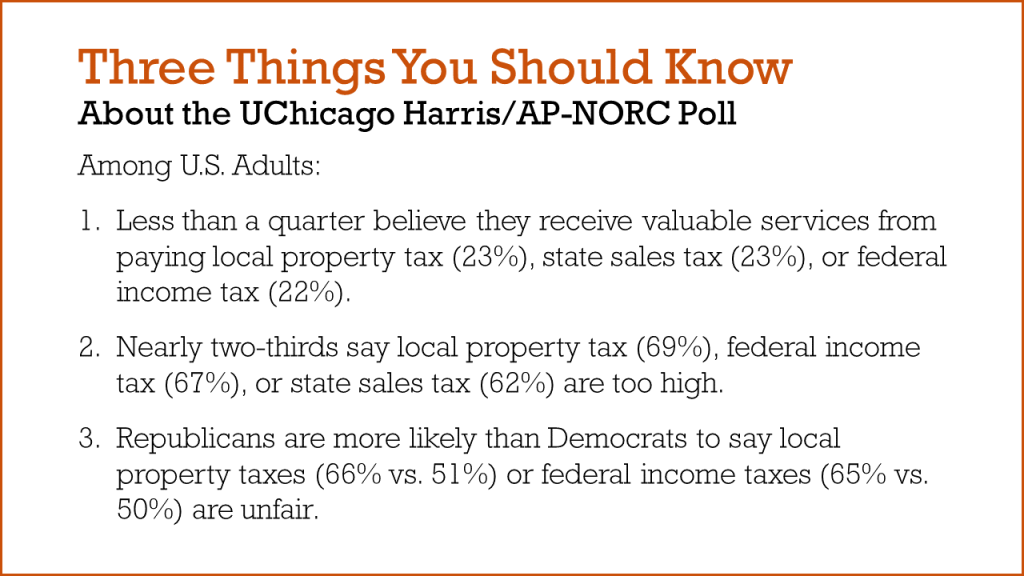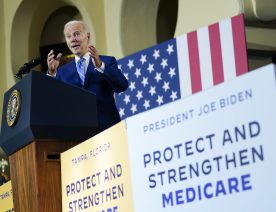
January 28, 2024
The public tends to have similar opinions of sales, property, and income taxes, and attitudes toward these taxes are closely tied to political partisanship, according to new UChicago Harris/AP-NORC Poll.
About two-thirds of people consider their federal income tax (67%), state sales tax (62%), and local property tax (69%) to be too high. Most believe that middle income earners have the heaviest tax burden compared with those in higher or lower income groups.
Most adults say federal income tax (60%) and local property tax (59%) are unfair while about 4 in 10 say each tax is fair. Democrats are more likely than Republicans to see taxes as fair, and Republicans are more likely to say their taxes are too high.
About a third of adults say they are receiving poor value from the taxes they pay, while less than a quarter believe they receive good value from paying these taxes.
Most people lack confidence in the way taxes are spent by the federal government (66%) or state governments (58%). People are more likely to express at least some confidence in local governments (49%) or local school districts (53%) to spend their tax dollars wisely.
Democrats generally trust the government to spend tax money for the benefit of people like them and are open to higher taxes for more services. In contrast, Republicans are more skeptical of government spending, expressing a preference for lower taxes with fewer services.
Attitudes toward income, property, or sales taxes tend to be more closely associated with partisanship than other demographic characteristics such as age, education, or income.

The nationwide poll was conducted by the University of Chicago Harris School of Public Policy and The Associated Press-NORC Center for Public Affairs Research from December 14 to 18, 2023, using AmeriSpeak®, the probability-based panel of NORC at the University of Chicago. Online and telephone interviews using landlines and cell phones were conducted with 1,024 adults. The margin of sampling error is +/-4.2 percentage points.
- Suggested Citation: AP-NORC Center for Public Affairs Research. (January, 2024). “Majorities view local, state, and federal taxes as too high and delivering too little value for people like them” https://apnorc.org/majorities-view-local-state-and-federal-taxes-as-too-high-and-delivering-too-little-value-for-people-like-them







